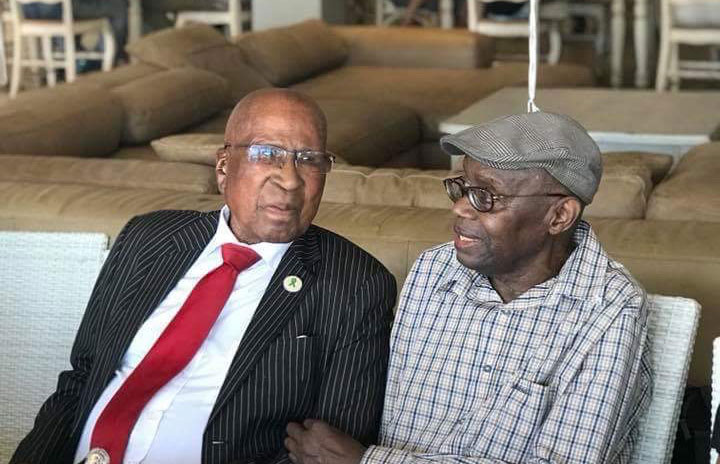The documentary retells the story of the student who was seduced by what the ANC stood for and brings to the fore the reason why Michael Dingake should be celebrated by Batswana as an icon of freedom. Staff Writer GOSEGO MOTSUMI reports
After attending the launch of political activist and writer Michael Dingake’s book, “Better to Die on One’s Feet: One Man’s Journey from Robben Island to Freedom” in 2015, filmmaker Mpho Dintwa of Box Screen pictures was intrigued by the legend’s life story and approached Dingake about documenting his life story for the screen. The result is “Ties that Bind.”
“Little did I know that I was starting something bigger than I thought. MK,’ as those close to Dingake call him, is a giant of a man,” the filmmaker says.
The film crew started working on the project in 2016 after reading his autobiography titled “My Fight Against Apartheid,” that was first published in 1987. In this book, Dingake talks about his formative years to his release from Robben Island.
Much of the book is about his 15 years on Robben Island where he was a fellow prisoner with Nelson Mandela, and gives a graphic account of the conditions that political prisoners faced on apartheid’s penal island. The documentary is near completion as it will be released in March 2021 and discussions about where it will premiere are underway.
“Dingake’s story is inspirational. Here is a man who went to South Africa to study but was seduced by the idea what the ANC stood for. Dingake should be celebrated in Botswana because he is our own Mandela, the man who sacrificed everything so that I can be here today doing stories like this one. What I learned in the process was that the generation of Dingake in politics was a generation dedicated to serving and was guided by principle. Maybe this is something that we could all learn,” says Dintwa
Dingake is among several lesser known but very important liberation struggle figures, and the documentary helps bring to the fore the involvement of the regional bloc in the fight against the oppressive regime. The film explores key events and influences of Dingake’s years and uncovers his deeper story to-date.
Prominent figures in Dingake’s life story made contributions in the documentary, among them Thabo Mbeki, Mac Maharaj, Andrew Mlangeni, Thandie Rankoe, the late Serara Mogwe, Professor Ben Bolane, Professor Key Dingake, Methaetsile Leepile, Maria Dingalo, Lebogang Kesiilwe, Gosego Dingake, Florence Shagwa, Gilson Saleshando, Thabang Makwetla, Wally Serote, Thembi Dingake and Michael Dingake himself.
Mac Maharaj, who is a retired South African politician affiliated with the African National Congress, academic and businessman in the film said: “We accepted the idea, Mike accepted the idea that we would die in the struggle, and therefore he never put his own safety above the safety of others … Mike also made a huge impact on Botswana’s political landscape.”
Dintwa adds that while filming was ongoing, they encountered some hiccups because COVID-19 has changed life and filmmaking across the globes was hit hard. “It has been a mess,” he says. “My hope is that we wake up one day and this is gone. I would like to take this time to send my prayers to all those who lost loved ones due to COVID-19.”

